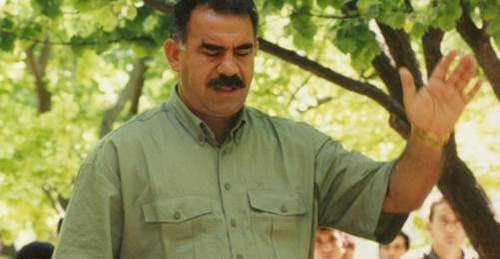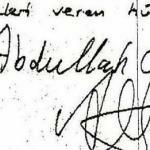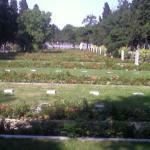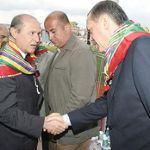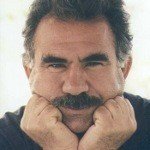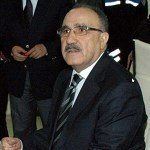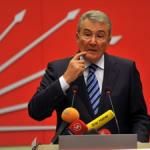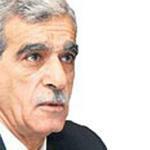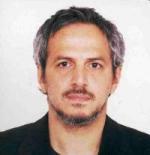Abdullah Öcalan, the leader of the armed Kurdistan Workers' Party (PKK) imprisoned on İmralı island, met with his lawyers on 14 August.
An expected "road map" has not been completed, but Öcalan said he would have it prepared by 19 August.
According to the Fırat News Agency (ANF), Öcalan made the following comments:
Everyone will make their own decisions: Kurds need to make their own decisions. People cannot make me responsible for everything. If there is development, they will also be included. It is not possible to say 'let them prepare something and I will follow orders'. Young people, women, they will all make their own decisions. There will be not be a solution made to order. [...] They will decide there, I will decide here, others will decide somewhere else. Thus we will make this work together.
A new process: A new period has begun, new and different. It is as important as the foundation of the Republic by Mustafa Kemal. It is a time when a democratic society will be built. The society of Turkey will learn the culture of democracy. [...] It has taken a long time, but it will be good. What should have been done in the 1920s, will happen now. We will complete what was begun in the 1920s.
Everyone must understand this new period well. The Democratic Society Party (DTP) must understand it well. If it does not, it will be passed over. If the Nationalist Movement Party (MHP) and the Republican People's Party (CHP) continue like this, it will be their end. They should not obstruct this process; If they do, they will be finished in six months time, by the spirit of this new period. The ruling Justice and Development Party (AKP) cannot afford to wait for a long time either. Within a few months the AKP's real intentions, its plans will become clear. It will also become clear whether the party is sincere.
New Middle East Policy: In 2007, the USA withdrew its support for Gladio and announced that it it would not support illegal executions and murders anymore. From now on it is unlikely that such extrajudicial killings will take place, things will remain in a legal framework. The US and other political powers will have different Middle East policies. It also does not want the PKK to exist anymore, but knows that it cannot end it with arms. It wants to disarm the PKK, but needs to compromise with us. A compromise will emerge. Britain and the US [...] are already cooperating with Barzani and Talabani in Northern Iraq. They may want to compromise with us in the same way. But it is not easy without something concrete, and they will not want to become concrete easily. These are sensitive and serious issues, they cannot be specific. They don't know what to think about Turkey, nobody does.
I would not accept a federal state: In the past, I thought that everything would be alright if a state were formed. Then I realised that a state was not the solution but would create problems. [...] That is why I don't see the solution as lying with a state. If they gave me a federal state, like in the south (i.e. Northern Iraq), I would not accept that either. My solution goes beyond that, with a new approach that is not limited by classic templates. Our model is close to the European model, but more developed than thatç The European model is not totally democratic either.
State should be involved: But I am not saying that the state should not be involved in the solution of the Kurdish question. The state will be there, but it will a state that respects freedoms. [...] My model for a solution is this: There will be the state on one side, and a democratic Kurdish nation on the other. The Kurds will acknowledge the existence of the state and accept it. The state on the other hand will accept the right of the Kurds to be a democratic nation. That is how they can meet in the middle. In short, that is my understanding of a solution. Everything else comes afterwards. This means that civil society needs to become more democratic. After that, if the state wants, there can be flags everywhere, it can take its services everywhere, it can teach Turkish everywhere.
However, Kurds must be allowed to associate, to exist as a democratic nation. If they can organise their own sports, education, religious organisations, parliament, municipalities, they will. They may even organise their own defence. [...] A society that cannot organise itself is a dead society. [...] For this process to be made possible and for us all to work on it, conditions need to be suitable.
Everything will change: Everything and everyone will change completely. In the past, I considered radical change like in the October Revolution or the French Revolution, a new state. But times have changed. It would have menat great risks and losses. Now I have gone beyond that and believe that a state in the classic sense is more of a problem than a solution. [...]
Now they are talking about education in the mother tongue and about culture, etc. With my solution, Turks as well as Kurds will express their languages, cultures and life styles, they will coexist.
Mustafa Kemal's signature: Currently the press is discussing the Amasya Protocols of 20-23 October. Of the protocols, three are known and two are still being kept secret. The second protocol, of 22 October 1919, signed by Mustafa Kemal, also contains ethnic and social rights of Kurds. The protocols that are known became public in 1960. What is more, there was a plenary on 10 February 1922. A friend from prison wrote to me and told me that there were 237 votes for and 64 votes against Kurdish autonomy.
Not against Fethullah Gülen: I read Fethullah Hoca and don't find him negative. He has got societies and schools in Kurdistan, they are organised. On a democratic basis, there could be mutual rapprochement. (TK/AG)





